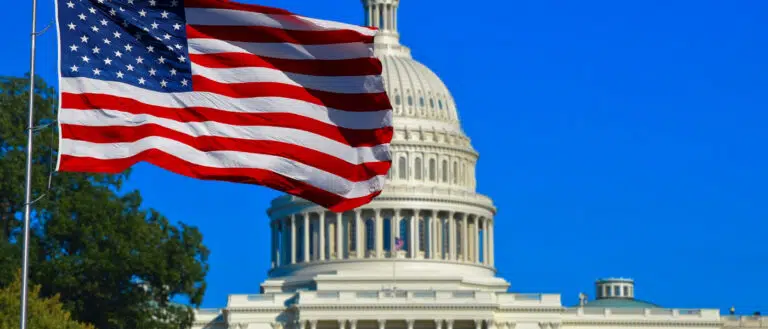West Virginia Passes Esports Betting Legislation

Update: West Virginia HB 4826 passed into law without the governor’s signature in March 2022. West Virginia sportsbooks may now offer esports betting.
West Virginia’s legal sports betting market has a chance to expand if lawmakers approve a recently introduced House Bill. Several Delegates introduced House Bill 4826 last week, which will allow betting on esports events. The bill changes the way esports are classified, naming the events as a game of skill for spectators.
Details of the Measure Attempting To Legalize Esports Bets In WV
originated in the Committee on the Judiciary and seeks to amend and reenact a portion of the Code of West Virginia. The measure provides a new definition of esports, categorizing the activity as a legitimate option for wagering in the state.
Delegates Bennett Queen, Shawn Fluharty, Moore Captio, Daniel Linville, and Steve Westfall support the measure as sponsors. The bill now sits within the House Finance Committee for further consideration.
West Virginia was one of the first states in the US to decide to legalize sports betting following the US Supreme court repeal of PASPA in May 2018. By August 2018, retail and online wagering were live in the state. By offering esports betting, supporters are hoping to capture a new segment of the market, as this type of wagering is popular among the younger demographic.
The bill is in its early stages, but we should see over the next few weeks if it has enough support to move forward and offer another betting option in the Mountain State.
Esports Betting Industry Expected to Grow Exponentially by 2027
Over the past few years, esports activity has been on the rise. In the past, esports was considered a niche market in the US, but it is gaining traction as a mainstream gaming activity. Current developments in esports have seen it go from a subset of sports culture to its own industry.
A estimates that the esports market will skyrocket to $4.75 billion by 2030. Already, several active tech and gaming companies are involved in the industry, with more expected to join in the coming years. Such companies include DraftKings, Esports Technologies, Penn National Gaming, Esports Entertainment Group, and Score Media and Gaming.
Factors driving the market size of global esports include the popularity of video games and the increase in game streaming. Gone are the days when players would simply buy a game and play it. Gamers are now tuning in to live streams of their favorite titles to watch the action go down, enjoying the commentary by top players of Apex Legends, Lost Ark, and Fortnite.
The most popular games that players are betting on include League of Legends, Dota 2, and Counter-Strike: Global Offensive when it comes to esports events. Global operators consistently offer odds involving these games where fans can bet on the outcome, including how their favorite gamer fares.
Several states have legalized esports betting in the US, but options are limited. States like Arizona, Maryland, Ohio, Virginia, Connecticut, and Wyoming have laws on the books but are not necessarily offering such betting options. New Jersey is perhaps the most well-known for offering esports wagering. This year, Esports Entertainment Group (EEG) was handed a transactional waiver by the Division of Gaming Enforcement to accept bets in the state.
EEG offers services in the state via VIE.gg. The New Jersey site currently offers hundreds of matches each day; such games as DOTA 2, CS: GO, and League of Legends, are highlighted.
Sadonna brings creativity and knowledge to create quality gambling industry news coverage. The gambling landscape is constantly changing and Sadonna stays on top of the latest developments, good and bad. Sadonna plays a vital role at ycgts.shop in providing current updates with fully-researched news pieces.







